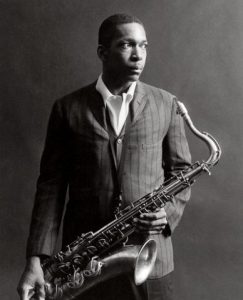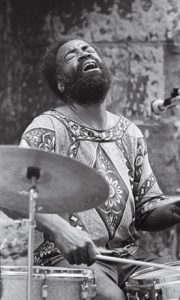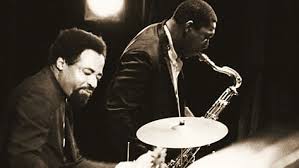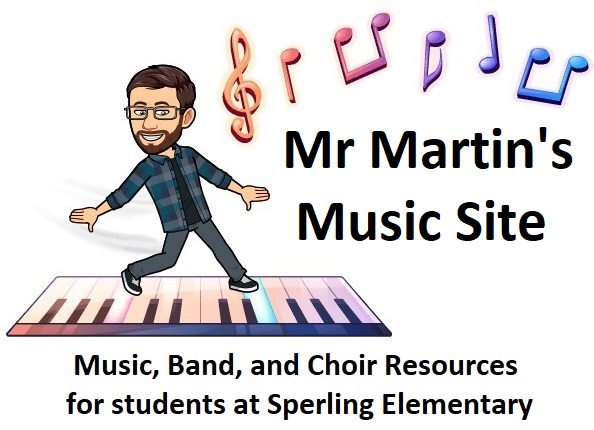
John Coltrane
This week, we will listen to two pieces that share the same names as Holst’s compositions “Mars” and “Venus”, but are otherwise as completely different from Holst’s music as you can imagine.
You might remember the name John Coltrane from previous lessons. Yes, he is one of my favourite musicians, and he is also one of the most important saxophone players in the history of jazz music.
In 1967, John Coltrane teamed up with a drummer named Rashied Ali to record a free jazz album that was called “Interstellar Space”.

Rashied Ali
Free jazz is a special type of jazz music that might sound unusual to you at first. Like most other jazz music, free jazz features lots of improvisation, which is when the musicians use their creativity to make up new parts that fit with the song while they are playing it.
What makes free jazz special is that it usually doesn’t use harmony, tempo, form, and other musical elements in the same ways that we are used to hearing them. Free jazz often “breaks the rules” that we use in other types of music.
Just like Holst’s “The Planets”, the first two pieces of “Interstellar Space” are called Mars and Venus. Remember, even though they share the same names, they are different compositions done in a very different styles of music.
Click here to listen to MARS by John Coltrane with Rashied Ali.
Click here to listen to VENUS by John Coltrane with Rashied Ali.

-
What is your first reaction to this music? What words would you use to describe it and how it makes you feel?
-
What are some differences you hear between Holst’s “The Planets” and Coltrane’s “Interstellar Space”?
-
Are there any similarities between Holt’s Mars and Coltrane’s Mars? How about their Venus pieces?
-
Do you like “The Planets” or “Interstellar Space” more? Or do you like them both… or not like either? (This is your personal opinion and musical taste, there is NO WRONG ANSWER here!)
Post your answers in a reply in Teams or email them to me.
